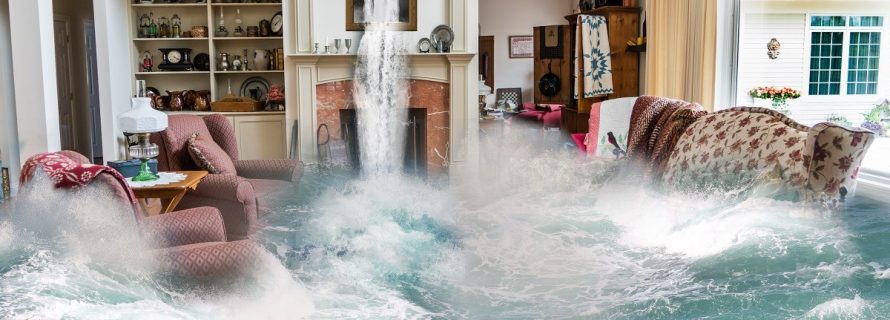What to do if your basement starts flooding

Spring is a beautiful time for many homeowners. It’s an opportunity to get outside, work on the garden, keep up your landscape and play in the yard with the kids. But the torrential rain that makes your lawn green and your garden grow can also lead to some serious flooding in your basement.
Homes in floodplains or near certain bodies of water are particularly susceptible, but with extreme storms there’s also the possibility that groundwater levels can rise high in homes that are unequipped to handle such flooding. While you may be concerned about the damage to your finished basement, it’s important not to panic and to be calm and active while the rain continues to fall and levels keep rising.
Here are some of the most important things to keep in mind when your finished basement is flooding.
Don’t go into the water that’s flooding your basement for any reason Most people won’t have thought to turn off their power or gas before the flooding begins. Electrical shock from flood water in the basement is a very real danger because many basements house electrical boxes and high-wattage outlets for appliances like a dryer.
Evacuate If things are going from bad to worse and the water levels in your finished basement are rising into your home’s main level, then it’s time to leave. The New York Department of Health advised that before leaving, families can try to save items that can be damaged by water if there’s time. This can include birth certificates, important documents, electronics and other delicate items that people can store on the second or third level of their homes. People should also turn off the electricity, water main valve and propane if possible. Although, natural gas shouldn’t be turned off in case the area is devastated and you need to return home and cook – it can’t be easily turned on again without a gas worker.
Be cautious if you stay at home If the rain is continuing and your basement is slowly filling with water but there’s no immediate danger and your family decides to stay, there are still precautions to be taken. Not only should you avoid the water from the basement completely, but you should avoid any food that’s touched the water, as it may be tainted.
It’s also important not to use water from a private well or flush toilets. When your basement is flooded, your well and your septic area will likely be flooded too. Flushing the toilet can lead to waste in the basement or waste coming back through the toilet, while the well’s water isn’t safe for drinking or boiling. Use a camping toilet and city or bottled water as alternatives.
Clean and rebuild It won’t be easy and it may take a while before your family is brainstorming finished basement ideas again, but you can clean out your basement and begin to rebuild. Everything consumable that touched the flood water, from food to hygiene products and medicine, should be thrown away. The basement will likely need to be pumped out and the damage assessed by your insurer. You may also want to look into permanent pump solutions to help prevent your basement from getting to the point of flooding in the future.
- Additions and New Construction
- All Exteriors
- Alterations
- Basements
- Bathrooms
- Customer Service
- Customer Stories
- Decks
- Design & Planning Show
- DIY
- Doors
- Educational Resources
- Extreme Makeover Home Edition
- Fashion Show
- General Remodeling
- Green Living
- Handyman Home Services
- Home Decor
- Home Entertainment
- Home Improvement
- Home Improvements
- How to Tips
- In The Community
- Kitchens
- Off-the-Wall Remodeling Stories
- Remodeling
- Resources
- Roofing
- Siding
- Social Media
- Sunrooms
- Tips & Tricks
- Trends
- Windows

